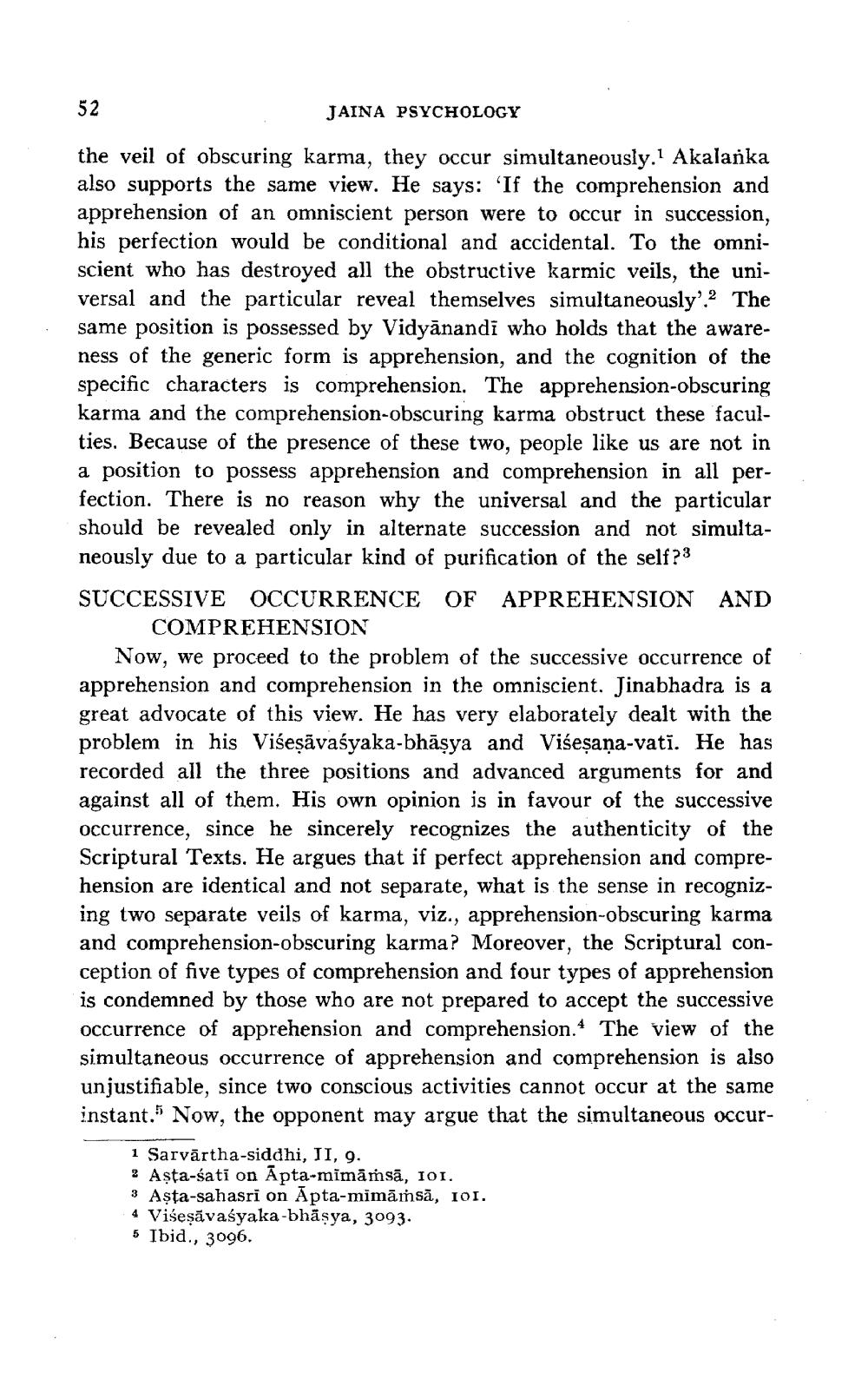________________
52
JAINA PSYCHOLOGY
the veil of obscuring karma, they occur simultaneously.? Akalanka also supports the same view. He says: 'If the comprehension and apprehension of an omniscient person were to occur in succession, his perfection would be conditional and accidental. To the omniscient who has destroyed all the obstructive karmic veils, the universal and the particular reveal themselves simultaneously'.2 The same position is possessed by Vidyānandi who holds that the awareness of the generic form is apprehension, and the cognition of the specific characters is comprehension. The apprehension-obscuring karma and the comprehension-obscuring karma obstruct these faculties. Because of the presence of these two, people like us are not in a position to possess apprehension and comprehension in all perfection. There is no reason why the universal and the particular should be revealed only in alternate succession and not simultaneously due to a particular kind of purification of the self?3 SUCCESSIVE OCCURRENCE OF APPREHENSION AND
COMPREHENSION Now, we proceed to the problem of the successive occurrence of apprehension and comprehension in the omniscient. Jinabhadra is a great advocate of this view. He has very elaborately dealt with the problem in his Višeşāvaśyaka-bhāşya and Višeşaņa-vati. He has recorded all the three positions and advanced arguments for and against all of them. His own opinion is in favour of the successive occurrence, since he sincerely recognizes the authenticity of the Scriptural Texts. He argues that if perfect apprehension and comprehension are identical and not separate, what is the sense in recognizing two separate veils of karma, viz., apprehension-obscuring karma and comprehension-obscuring karma? Moreover, the Scriptural conception of five types of comprehension and four types of apprehension is condemned by those who are not prepared to accept the successive occurrence of apprehension and comprehension. The view of the simultaneous occurrence of apprehension and comprehension is also unjustifiable, since two conscious activities cannot occur at the same instant." Now, the opponent may argue that the simultaneous occur
1 Sarvārtha-siddhi, II, 9. 2 Asta-sati on Apta-mimāṁsā, 101. 3 Asta-sahasri on Apta-mimāmsā, IOI. 4 Viśeşāvaśyaka-bhāsya, 3093. 5 Ibid., 3096.




